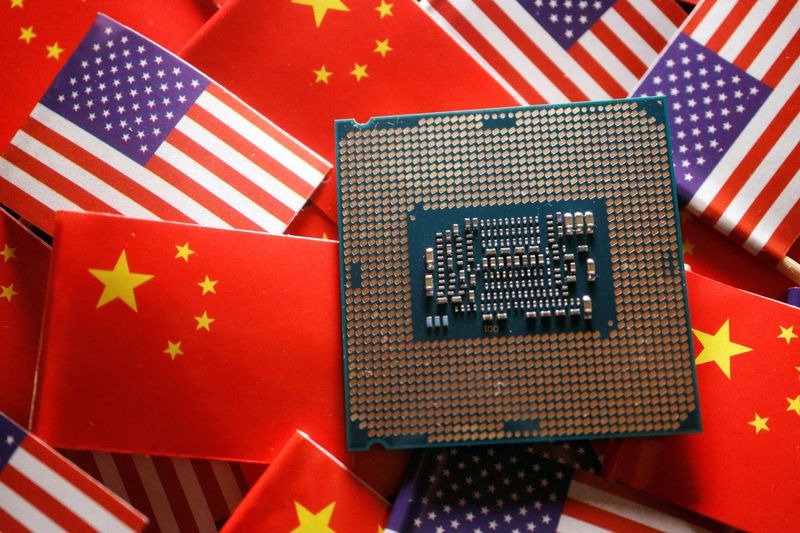Investing.com -- Further escalation in trade disputes between the US and China or a sharp increase in tensions between China and Taiwan are the two major geopolitical risks that “could prick the AI bubble,” Capital Economics said in a Friday note.
While tech stocks have outperformed this year, there are growing signs that this rally could falter as geopolitical risks intensify, particularly in light of the upcoming US presidential election.
The report highlights two major events that could be critical for the US stock market: a further decoupling of trade ties between the US and China or heightened Cross-Strait tensions.
Both scenarios, even if a full-blown conflict is avoided, "present a big risk to the health of the AI bubble."
The strategists have been arguing for some time that enthusiasm surrounding AI has inflated a bubble in the US stock market, and while they expect the hype to fuel further rallies, the sector's current high valuations make it "especially vulnerable to anything that could sour investor sentiment towards them.”
A key concern is Taiwan’s role in the AI supply chain. Taiwanese firms account for a staggering 90% of the market for advanced chips and AI servers, which have driven the AI capex boom at major tech companies like Microsoft (NASDAQ:MSFT), Apple (NASDAQ:AAPL), Alphabet (NASDAQ:GOOGL), and Meta (NASDAQ:META). Capital Economics notes a disruption in this supply chain due to geopolitical tensions could be catastrophic for these firms.
“China could restrict the flow of highly advanced semiconductor chips and Al servers from Taiwan to the US, thereby breaking the "Al supply chain",” the note states.
Even without a full-blown conflict, any disruption would disproportionately affect big tech firms. This vulnerability stems from their reliance on Taiwan for critical supplies and the fact that alternatives would be "expensive and/or impractical."
On the US-China trade front, the report highlights the risk of escalating tensions following the 2024 US presidential election.
If Donald Trump returns to power, the strategists expect a "significant increase in tariffs on Chinese goods" and a broader retreat from free trade, which would create cost pressures for tech firms.
Even a Harris administration, which is expected to maintain the current export control policies, poses a risk. Export controls have already hit large US tech companies, with China and Hong Kong’s share of Nvidia’s sales falling from 28% in 2022 to about 12% now. Further controls could have a "bigger and more lasting impact on the share prices of US tech firms than they did in the past," the note adds.
The strategists also point out that financial markets have shrugged off previous geopolitical tensions, including the 2022 escalation in Cross-Strait relations, the Russia-Ukraine war, and the recent Israel-Hamas conflict.
But as the 2024 US election approaches, they believe that there is “a good chance that investors become a bit more concerned” about the possibility of higher tariffs and rising tensions.
